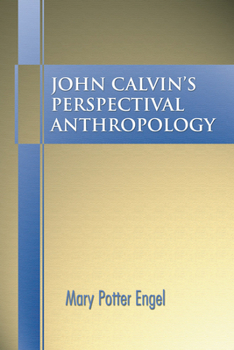John Calvin's Perspectival Anthropology
Select Format
Select Condition 
Book Overview
This work makes three important contributions to Calvin studies and, more generally, adds to the growing literature on anthropology in the Middle Ages, Renaissance, and Reformation. First it challenges the prevalent bias toward focusing on Calvin's doctrine of God to the neglect of his doctrine of humankind. Second, it provides an original and provocative interpretation of the overall structure of Calvin's anthropology. And third, Engel's analysis...
Format:Paperback
Language:English
ISBN:1592440207
ISBN13:9781592440207
Release Date:August 2002
Publisher:Wipf & Stock Publishers
Length:242 Pages
Weight:0.70 lbs.
Dimensions:0.5" x 6.5" x 8.9"
Customer Reviews
0 rating





